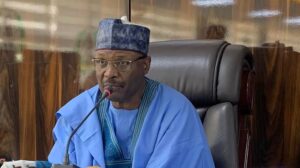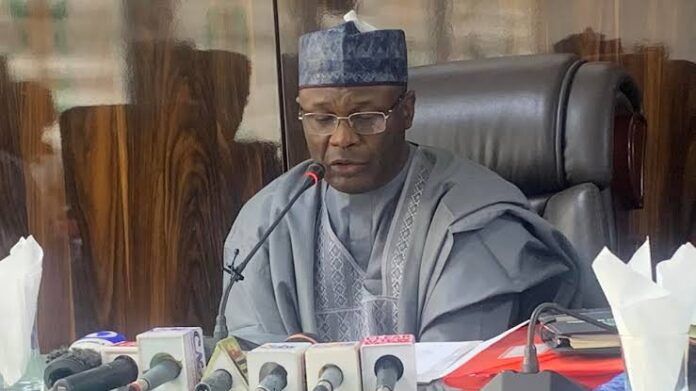In a significant development for Nigeria’s democratic process, two weeks after the Supreme Court granted financial autonomy to local governments, the Chairman of the Independent National Electoral Commission (INEC), Mahmood Yakubu, affirmed the commission’s readiness to conduct local government (LG) elections, should the legal framework be amended to assign this responsibility to INEC.
Yakubu made this assertion during his appearance before a Joint National Assembly Committee on Electoral Matters, where he presented the budget for the upcoming Ondo and Edo off-cycle elections. He emphasized that INEC is well-equipped to manage LG elections across the country’s 774 local government areas, provided that certain provisions of the electoral laws are revised to facilitate this transition.
Currently, state governments are responsible for organizing LG elections, a practice that has often been criticized by opposition parties. These parties argue that the ruling parties in states consistently dominate local council chairmanship seats, leading to a lack of genuine political competition at the local level. The Supreme Court’s recent decision to grant financial autonomy to local governments could pave the way for a more impartial and standardized electoral process, potentially overseen by INEC.
Yakubu pointed out that INEC already conducts elections in the 62 wards within the Federal Capital Territory (FCT) area councils, in addition to handling national and state elections. This experience, he argued, positions the commission well to extend its mandate to local government elections across Nigeria. He also highlighted the need for amendments to the electoral laws to facilitate this expanded role.
Addressing the budget for the Edo and Ondo governorship elections scheduled for September 21, 2024, and November 16, 2024, respectively, Yakubu urged Nigerians to recognize the significant technological advancements that INEC has implemented. He assured that the issues that marred the 2023 presidential election, particularly the malfunctions of the INEC Result Viewing (IReV) portal, have been addressed, and the commission has learned from its past experiences.
Yakubu expressed confidence that funding for the upcoming off-cycle elections would not be an issue, noting that the executive branch has pledged to release the necessary funds for the seven by-elections before the commission. This assurance is critical to ensuring the smooth conduct of these elections, which are essential for maintaining democratic governance in the states concerned.
 Moreover, Yakubu took the opportunity to call on lawmakers to expedite the passage of the Electoral Offenders Bill. This legislation is crucial for empowering INEC with the necessary authority and resources to effectively address electoral offences. By enabling the commission to arrest and thoroughly investigate individuals involved in electoral malpractices, the bill aims to reduce electoral malfeasance and enhance the integrity of Nigeria’s elections.
Moreover, Yakubu took the opportunity to call on lawmakers to expedite the passage of the Electoral Offenders Bill. This legislation is crucial for empowering INEC with the necessary authority and resources to effectively address electoral offences. By enabling the commission to arrest and thoroughly investigate individuals involved in electoral malpractices, the bill aims to reduce electoral malfeasance and enhance the integrity of Nigeria’s elections.
The INEC Chairman’s remarks come at a pivotal moment for Nigeria’s electoral system. The Supreme Court’s ruling on financial autonomy for local governments marks a potential turning point in the administration of local elections, promising greater independence and fairness. INEC’s preparedness to take on this expanded role, coupled with technological improvements and legislative support, could significantly strengthen the country’s democratic processes.
Yakubu’s address underscores the importance of continuous improvement and adaptation within Nigeria’s electoral framework. By leveraging technological advancements and securing appropriate legislative backing, INEC aims to enhance the transparency and efficiency of elections at all levels. As Nigeria moves towards these crucial governorship elections, the commission’s commitment to learning from past challenges and improving its operations bodes well for the future of democratic governance in the country.
In conclusion, the readiness of INEC to conduct local government elections, as affirmed by Mahmood Yakubu, represents a promising step towards more equitable and effective electoral administration in Nigeria. The collaboration between INEC, the executive, and the legislature will be essential in realizing this goal and ensuring that the democratic process continues to evolve and improve for the benefit of all Nigerians.




